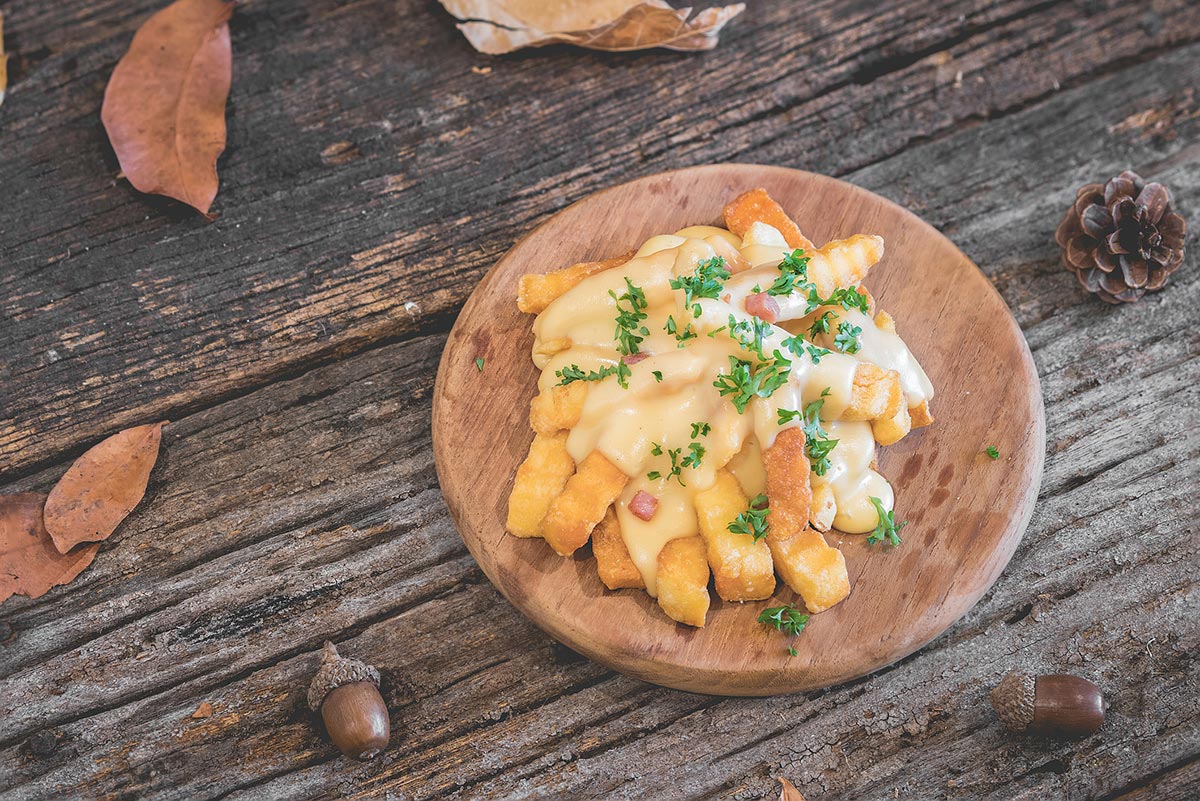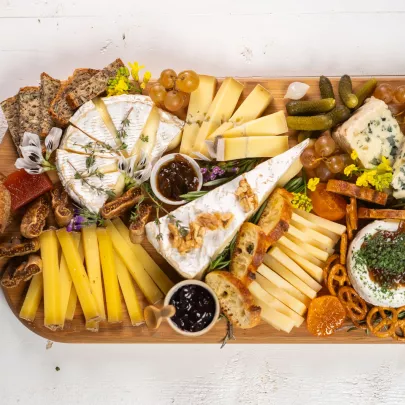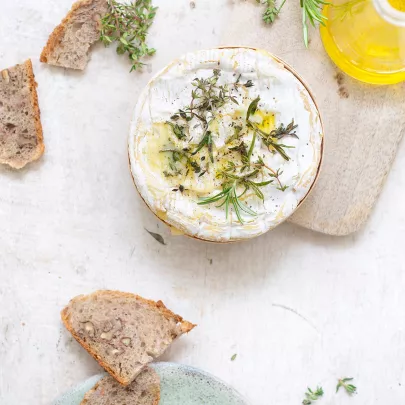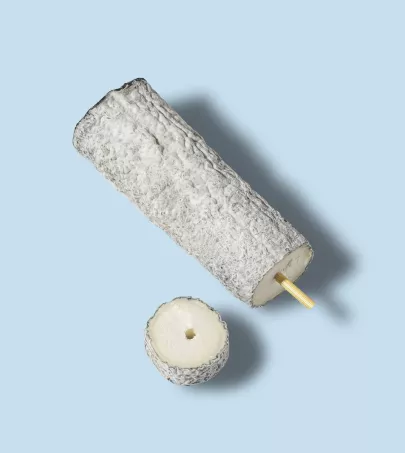
This iconic, soft-rind cheese is made in Normandy from raw cow's milk. Its white, bloomy rind is slightly downy and gives off a rather potent odor. This cheese features a creamy texture and a bold woody and earthen flavor.
What you need to know
According to legend, Camembert was created by Marie Harel during the French Revolution in 1791 in a village near Camembert in the Pays d'Auge region. Harel agreed to hide a priest who sympathized with the rebellion at her farm. In exchange, he taught her how to make the cheese.
The Camembert de Normandie label certifies that the cheese is made with raw cow's milk from Normandy. It comes in a round wheel that is around 4.5 inches in diameter and features a white, slightly downy rind.
The most artisanal version of Camembert is made by ladling the cheese into a mold in five distinct layers, each one spaced 50 minutes apart, once the milk has begun to curdle. After it is removed from the mold, the cheese is aged for 14 days in a cellar, then wrapped in paper and placed in a wooden box, where it continues to age for at least three weeks before it is sold.
Once the interior of the cheese is smooth and supple and either white or pale yellow, it is deemed to be fully ripened. This process takes around 35 days after production.
Characteristics
Smell
Look
Taste
Nutritional benefits
Rich in phosphorus, calcium, and zinc.
Editor's note
How to use
Storing Camembert
Store in your refrigerator's crisper drawer. Keep the cheese in its original paper wrapper and box, even after you've opened it.
Preparing and serving Camembert
Remove the cheese from the refrigerator one to two hours before tasting. Remove the paper wrapping and take it out of the box. Serve the cheese on a plate or a cheese platter. Cut a new triangle from the circle when you're ready to enjoy it.
Pair with
- Sweet: hazelnuts, walnuts, apples, dried figs, honey, and pineapple.
- Savory: potatoes, white truffles, button mushrooms, pork, and French charcuterie.
- Wines and other drinks: red wines from Châteauneuf-du-Pape, Beaujolais, pinot noir wines from Alsace, dry white chardonnays, Cidre Bouché de Normandie, Pommeau de Normandie, and amber beer.
















